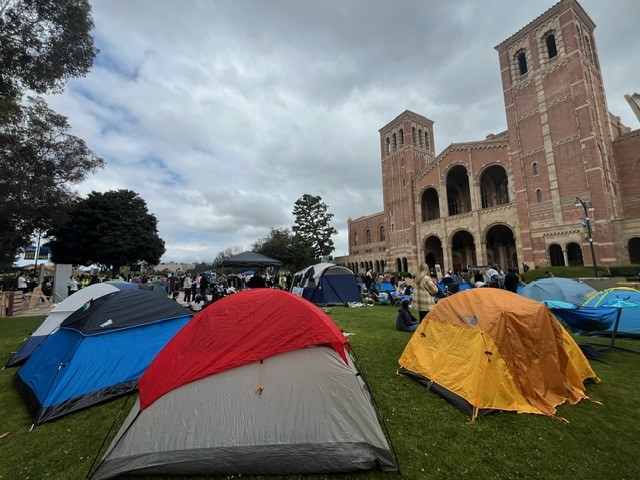The Los Angeles region achieved its lowest levels ever for unhealthy ozone days and for year-round particle pollution between 2013-15, but it still remains among the most polluted in the country, according to the American Lung Association's State of the Air report released Wednesday.
As it has for all but one of the association's 18 reports, the Los Angeles-Long Beach area was ranked worst nationally for ozone pollution. The region ranked ninth-worst for short-term particle pollution and fifth-worst for year-round particle pollution.
The State of the Air 2017 report is based on air quality monitoring data collected in 2013-2015, the most recent years available. The report focuses on ozone and particle pollution -- the most widespread forms of pollution threatening public health, it said.
"Our state's air quality continues to hit unhealthy levels each year, putting Californians at risk for premature death and other serious health effects such as asthma, COPD, and lung cancer," said Olivia Diaz-Lapham, president and CEO of the American Lung Association in California. "We are seeing continued improvement in parts of the state, but there are too many areas where residents are breathing dirty air and we must work to reduce all sources of air pollution."
California dominates the lists of most polluted areas in the country, with more than 90 percent of Californians estimated to be living in areas with unhealthy air at some point during the year. But Lung Association officials said there has been improvement, both in the state and nationally, in the overall number of unhealthy days for ozone. The organization credited the federal Clean Air Act and local and state pollution measures.
"We call on President (Donald) Trump, EPA Administrator Scott Pruitt and members of Congress to fully fund, implement and enforce the Clean Air Act for all air pollutants -- including those that drive climate change and make it harder to ensure healthy air for all Americans," Diaz-Lapham said.
The report also noted that despite overall improvement in air quality, there continues to be "an unrelenting increase in dangerous spikes in particle pollution," which originates from sources such as diesel engine exhaust, wood- burning devices and wildfires.
News
Top news of the day
The Bakersfield area ranked worst in the nation for such short-term particle pollution.



